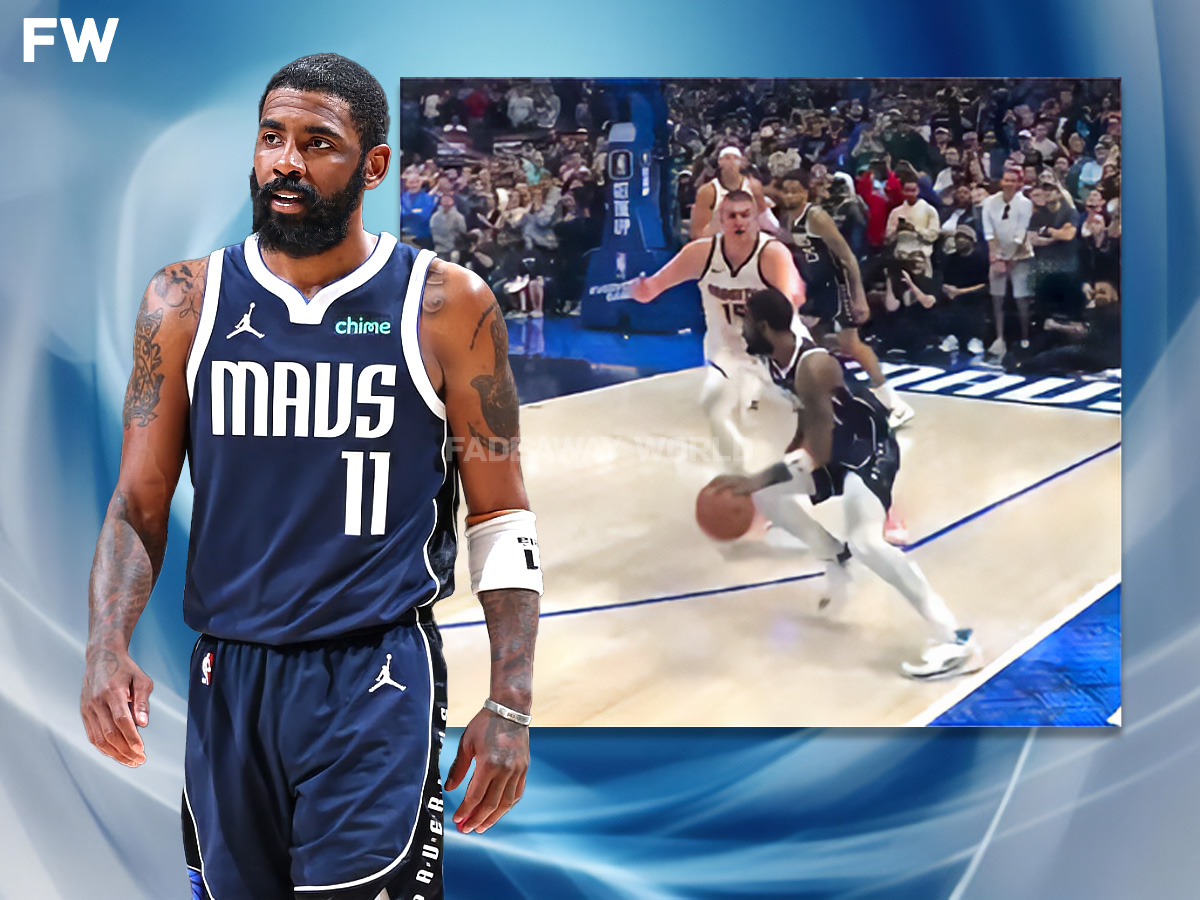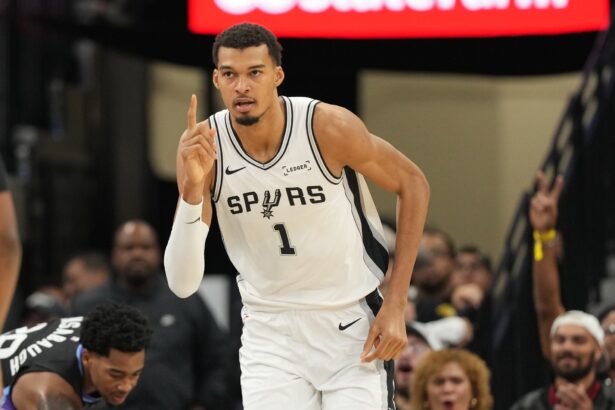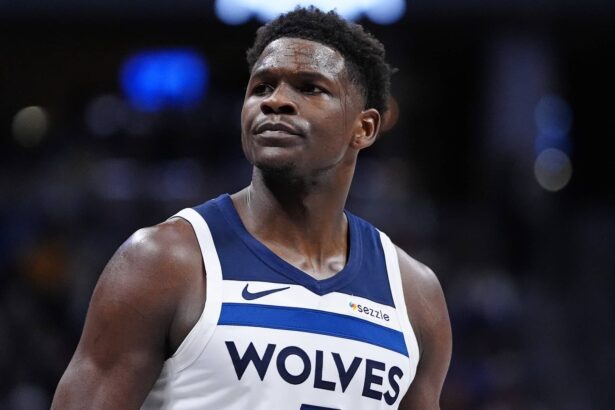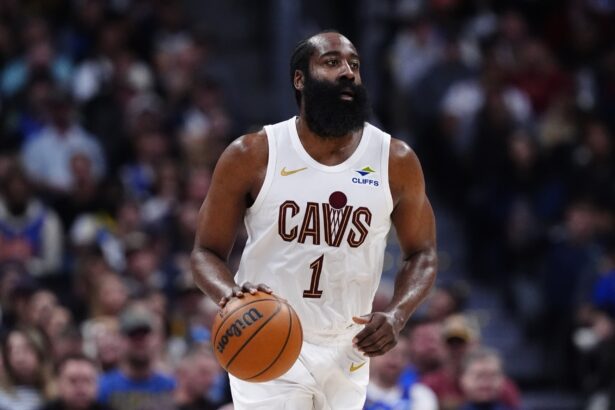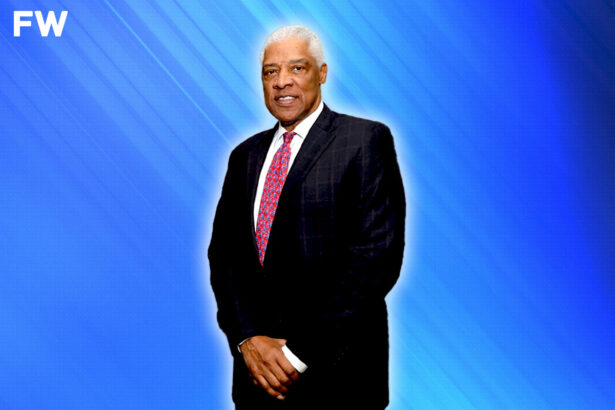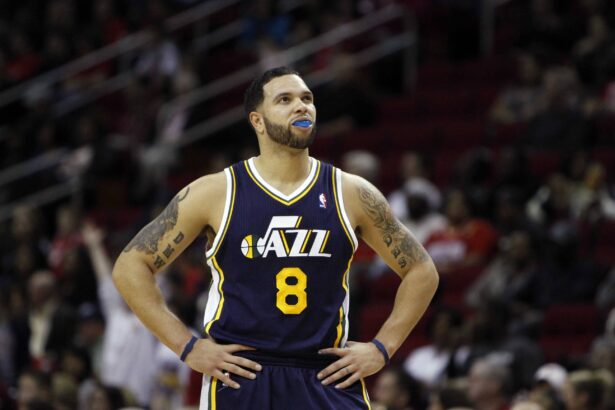The recent controversy surrounding Kyrie Irving’s game-winning shot against the Denver Nuggets has stirred up debate over the consistency of officiating in the NBA. While Irving’s buzzer-beating floater was undeniably spectacular, new evidence has emerged suggesting that he may have stepped out of bounds before making the shot.
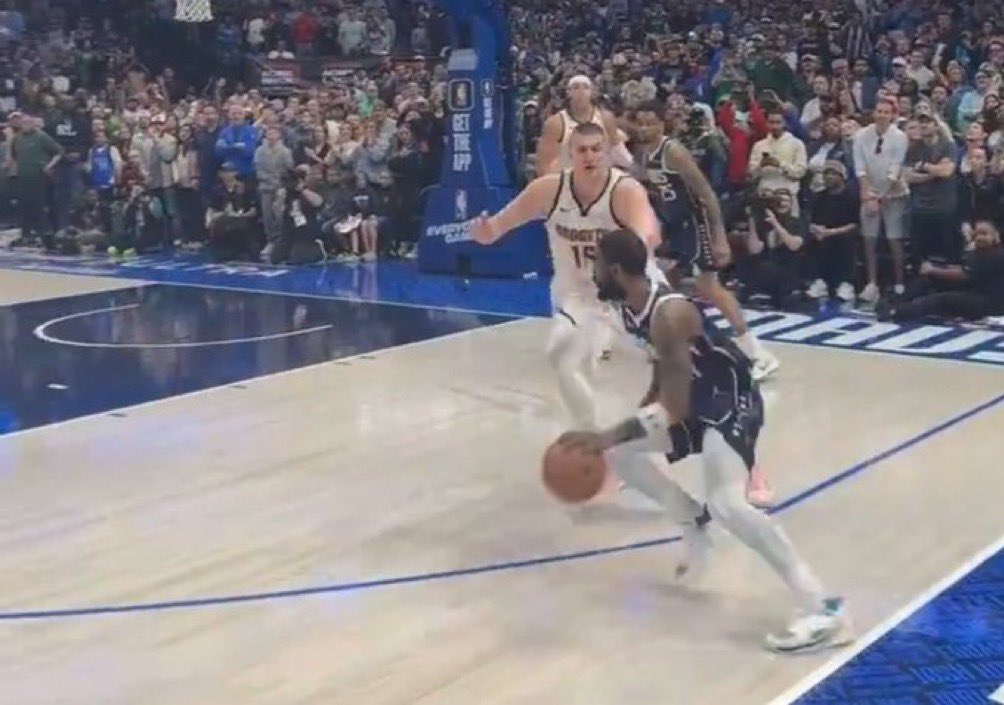
Images circulating on social media clearly show Irving’s foot touching the out-of-bounds line after catching the ball and attempting to drive in against Nikola Jokic. This revelation has sparked criticism and calls for greater consistency in officiating across the league.
You can observe in the video below that he may have crossed the boundary line. This angle provides perhaps the clearest view of the error.
Beautiful angle of Kyrie's left handed hook game winner over Jokic 🥶 The dexterity, awareness and skillful touch on display here is absurd. Pure hooper of the highest level.
🎥 @kyriecenterig pic.twitter.com/q9vbfCppHX
— Ball Don't Stop (@balldontstop) March 17, 2024
This incident comes hot on the heels of another controversial call involving LeBron James, whose three-pointer was initially ruled inbounds but later overturned upon review. Despite the enhanced images showing a small gap between LeBron’s foot and the sideline, the shot was deemed out of bounds upon closer inspection.
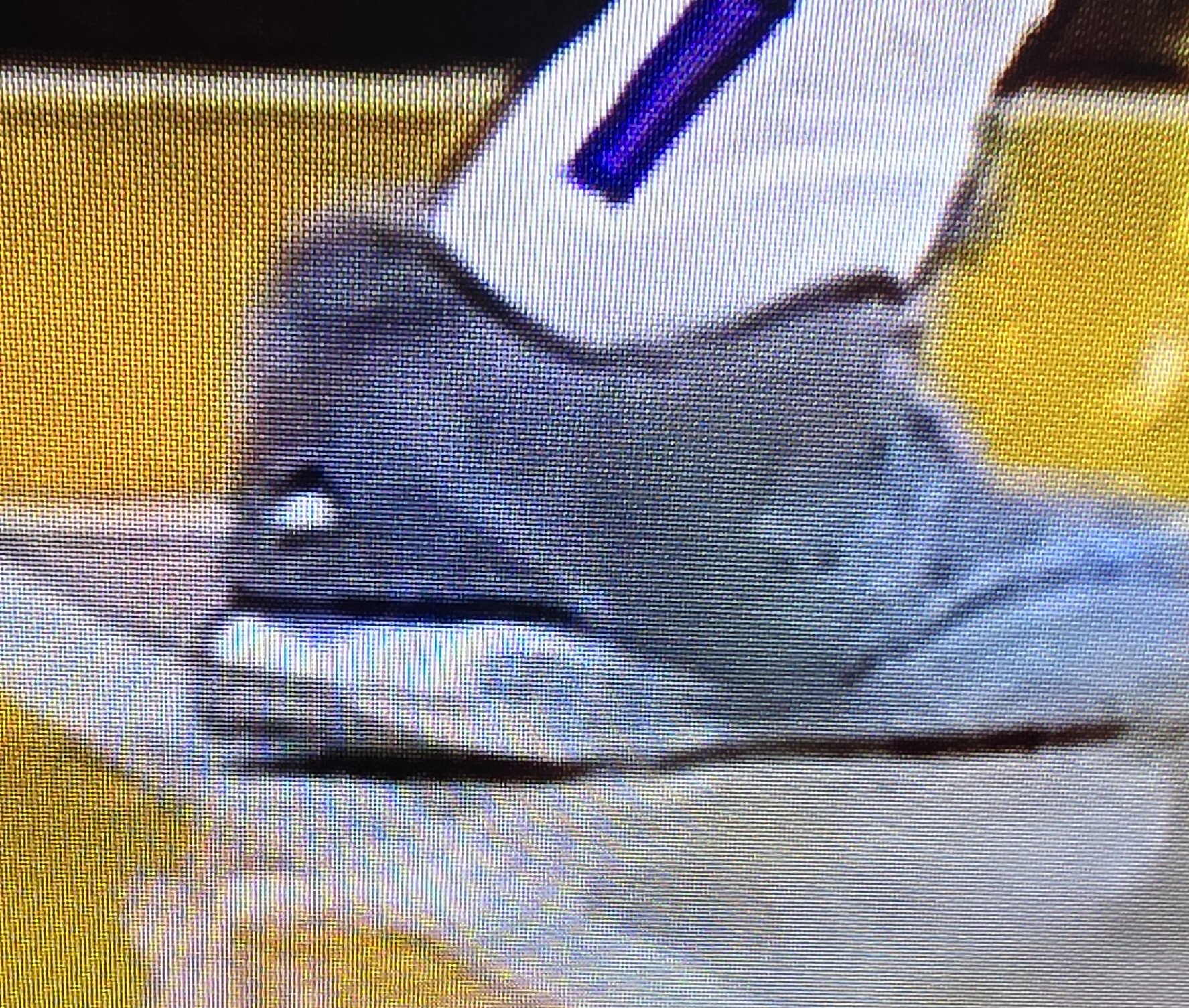
The issue at hand is the lack of consistency in officiating decisions, particularly regarding crucial moments in games. While Irving’s shot was reviewed to ensure it was taken within the allotted time, the referees seemingly overlooked the fact that he had stepped out of bounds prior to making the shot.
On the other hand, LeBron’s shot, which occurred outside of the final two minutes of the game, was still subject to review and ultimately deemed out of bounds. Despite the absence of a challenge from Steve Kerr or the Golden State Warriors, the referees chose to review the play and ultimately made an incorrect call.
The disparity in how these two incidents were handled highlights the need for greater accountability and transparency in officiating. Fans and players alike have expressed frustration over the inconsistency in calls, which can have a significant impact on the outcome of games.
Moving forward, it is imperative that the NBA takes steps to address these concerns and ensure that officiating decisions are fair and consistent across all games. Whether through improved technology or stricter adherence to established rules, efforts must be made to uphold the integrity of the game and provide a level playing field for all teams.
In conclusion, while Kyrie Irving’s game-winning shot was undoubtedly thrilling, questions surrounding its legitimacy have raised important concerns about officiating in the NBA. Greater consistency and transparency are needed to address these issues and uphold the integrity of the sport.
The NBA Referees Should Turn To Artificial Intelligence To Assist Them
In the fast-paced and high-stakes world of professional basketball, the role of referees is paramount in ensuring the integrity and fairness of the game. However, despite their expertise and experience, referees are human and prone to errors.
In recent years, controversies surrounding officiating decisions have raised questions about the need for enhanced assistance for NBA referees. As technology continues to advance, there is a compelling argument for NBA referees to turn to artificial intelligence (AI) to assist them in making more accurate and consistent calls.
One of the most significant advantages of leveraging AI in officiating is its ability to provide instant replay analysis. AI-powered systems can rapidly analyze footage from multiple camera angles, enabling referees to review close plays and make more informed decisions. Whether it’s determining possession, assessing whether a shot was taken before the shot clock expired, or reviewing potential fouls, AI can offer referees valuable insights in real time, reducing the margin for error.
Moreover, AI can automate the tracking of players’ movements on the court, providing referees with additional data to make better judgments. By analyzing player positioning and interactions, AI algorithms can help detect fouls, travels, or other rule violations that may have gone unnoticed by human referees. This automated tracking not only enhances the accuracy of officiating but also ensures that the game is played according to the rules, maintaining its integrity.
Predictive analytics is another area where AI can significantly benefit NBA referees. By analyzing vast amounts of historical data on player tendencies, team strategies, and referee decisions, AI algorithms can predict potential fouls or violations before they occur. Referees can use this predictive analysis to anticipate game situations and make proactive calls, thereby reducing the likelihood of missed calls or controversial decisions.
In addition to improving accuracy, AI can also help enforce consistency in officiating. By analyzing past officiating decisions, AI can identify patterns of inconsistency and provide feedback to referees to ensure uniform application of the rules across different games and officiating crews. Consistency in officiating is crucial for maintaining the credibility of the NBA and ensuring that teams and players are treated fairly.
Furthermore, AI-driven simulations and virtual reality platforms can provide referees with realistic scenarios for practice and training. By simulating game situations and offering instant feedback, these training tools can help referees improve their decision-making skills and better understand complex game scenarios. This continuous learning and improvement can further enhance the overall quality of officiating in the NBA.
The integration of AI technologies has the potential to revolutionize officiating in the NBA. By providing instant replay analysis, automating tracking, offering predictive analytics, enforcing consistency, and facilitating training, AI can assist referees in making more accurate, consistent, and informed decisions. Embracing AI is not about replacing human referees but rather augmenting their capabilities and ensuring that the game is officiated with the highest standards of fairness and integrity.
Thank you for being a valued reader of Fadeaway World. If you liked this article, please consider following us on Google News. We really appreciate your support.

